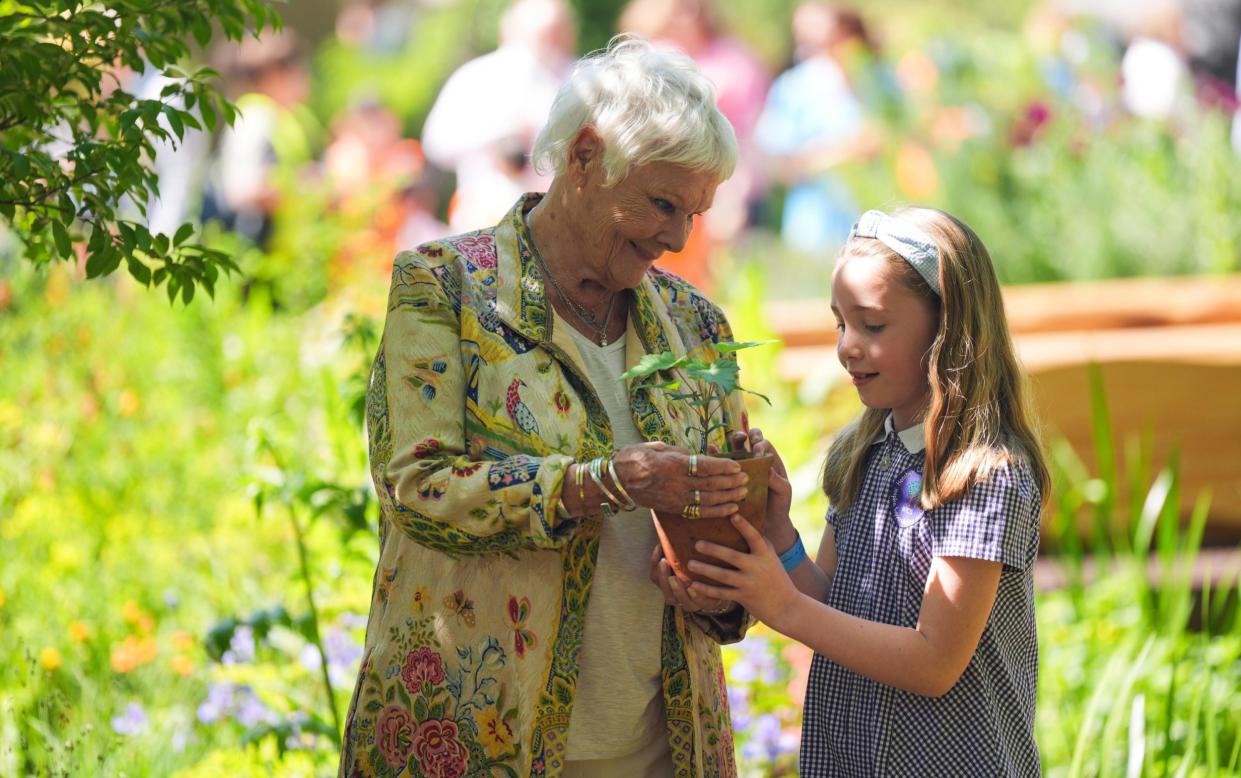Dame Judi Dench places first Sycamore Gap seedling at Chelsea Flower Show

Dame Judi Dench has placed the first seedling from the Sycamore Gap on the National Trust garden at the Chelsea Flower Show.
Dame Judi, who has been vocal about her love of trees, was presented the seedling by Charlotte Crowe, aged seven. She had won a competition at her school, near Hexham in Northumberland, the closest school to the Sycamore Gap, in which pupils were invited to draw a picture of the tree and write a short poem about what it meant to them.
In 2018, Dame Judi made a documentary with the BBC called My Passion for Trees, and has said she plants a tree every time a friend dies.
Dame Judi said she had named the seedling Antoninus, after Emperor Hadrian’s adopted son, given the location of the Sycamore Gap next to Hadrian’s Wall.
Andrew Jasper, the director of gardens and parklands at the National Trust, said: “Placing the Sycamore Gap seedling within the garden at Chelsea reflects the National Trust’s important role in preserving both our nation’s heritage and our shared horticultural heritage through plant conservation.
He added: “We hope that those who visit the garden at Chelsea this week will feel that beneficial connection to the natural heritage that we care for and also take inspiration from seeing the seedling – when we first saw the seedlings germinate, we knew there was hope for the tree’s future.”
At the end of the week-long event, the seedling will return to the National Trust plant conservation centre, where it will continue to be cared for until a decision is made on a permanent home.
Two men charged in connection with the felling of the world-famous tree last October appeared in court earlier this month.
Daniel Graham, 38, denied cutting down the tree in Northumberland and Adam Carruthers, 31, entered no plea to the same charge.
The National Trust garden was among the early winners at the Chelsea on Monday, picking up the first RHS Children’s Choice Award.
The garden was named for Octavia Hill, a social reformer and one of the founders of the National Trust in the late 19th century.
Ann-Marie Powell, who designed the garden, said this year’s Chelsea had taken a softer approach to tackling issues of sustainability and resilience.
“It’s not as raw as it perhaps was in previous years where it was all about getting natives in,” she said. “I think it felt a bit almost gone too far.”
She added: “We need to be using more non natives, particularly with our trees.
“I am advocating for different tree species so that once we lose our natives, which we will, there is a population that can actually support our biodiversity and wildlife, otherwise they will die too.”
Other winners on Monday included Giulio Giorgi’s garden for World Child Cancer UK, which won the first environmental innovation award.
The garden uses 3D printed terracotta blocks that connect together without the need for power tools. They were inspired by walled keyhole gardens, common in sub-Saharan Africa, which are designed to incorporate composting and water-retention.
Mr Giorgi said: “We really need to work our technologies and also garden strategies to cope with climate change, to cope with more humble resources.
“For me, the message is with simple means, you can still do something beautiful.”

 Yahoo News
Yahoo News 
